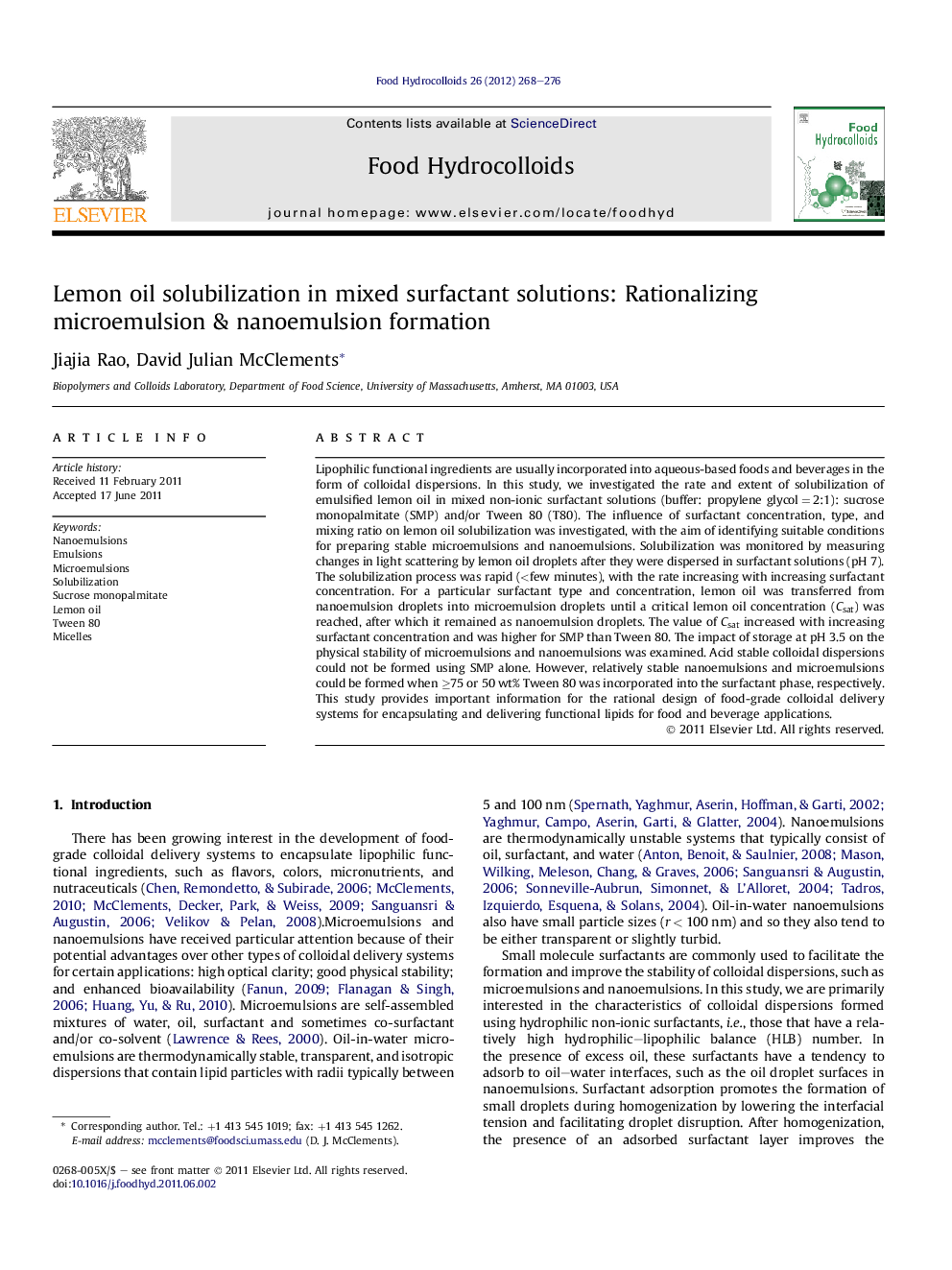| Article ID | Journal | Published Year | Pages | File Type |
|---|---|---|---|---|
| 605005 | Food Hydrocolloids | 2012 | 9 Pages |
Lipophilic functional ingredients are usually incorporated into aqueous-based foods and beverages in the form of colloidal dispersions. In this study, we investigated the rate and extent of solubilization of emulsified lemon oil in mixed non-ionic surfactant solutions (buffer: propylene glycol = 2:1): sucrose monopalmitate (SMP) and/or Tween 80 (T80). The influence of surfactant concentration, type, and mixing ratio on lemon oil solubilization was investigated, with the aim of identifying suitable conditions for preparing stable microemulsions and nanoemulsions. Solubilization was monitored by measuring changes in light scattering by lemon oil droplets after they were dispersed in surfactant solutions (pH 7). The solubilization process was rapid ( Graphical abstractLemon oil droplets can form microemulsions or nanoemulsions when mixed with sucrose monoester micelles depending on the surfactant-to-oil ratio.Figure optionsDownload full-size imageDownload as PowerPoint slideHighlights► Lemon oil is rapidly solubilized by non-ionic surfactant micelles (sucrose monopalmitate and/or Tween 80) up to a critical concentration. ► Microemulsions are formed when the lemon oil concentration is below the micelle solubilizing capacity. ► Emulsions or nanoemulsions are formed when the lemon oil concentration exceeds the micelle solubilizing capacity. ► Colloidal dispersions stabilized by sucrose monopalmitate alone were unstable at acid pH, but their stability could be improved by adding Tween 80.
